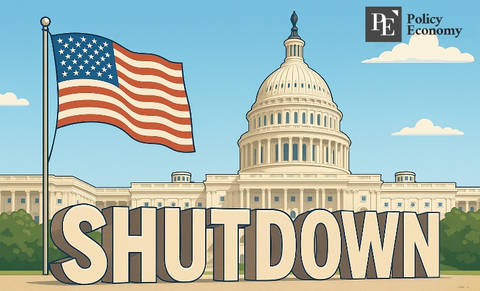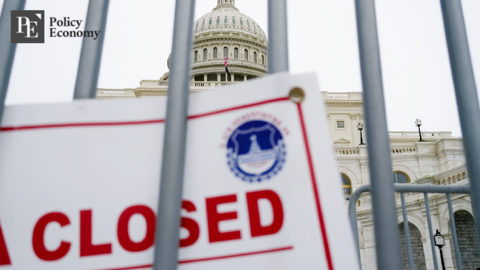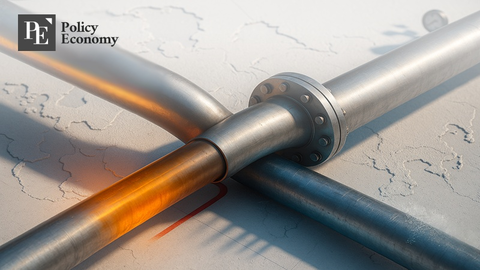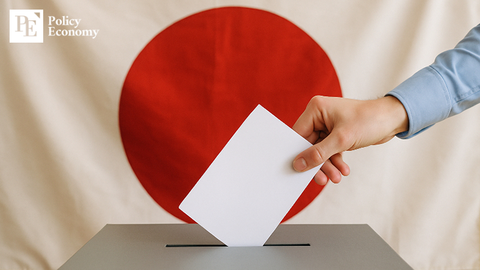[동아시아포럼] 중국의 정부 보조금은 기업들의 생산성을 촉진하는가
입력
수정
[동아시아포럼]은 EAST ASIA FORUM에서 전하는 동아시아 정책 동향을 담았습니다. EAST ASIA FORUM은 오스트레일리아 국립대학교(Australia National University) 크로퍼드 공공정책대학(Crawford School of Public Policy) 산하의 공공정책과 관련된 정치, 경제, 비즈니스, 법률, 안보, 국제관계에 대한 연구·분석 플랫폼입니다.저희 폴리시코리아(The Policy Korea)와 영어 원문 공개 조건으로 콘텐츠 제휴가 진행 중입니다.
각국 정부는 매년 자국 기업들에게 상당한 예산을 보조금으로 지원한다. 이 가운데 중국은 전 세계적으로 가장 많은 보조금을 지원하는 국가 중 하나로, 산업 부문 보조금에만 GDP의 1.7~5%를 지출한 것으로 집계됐다.
중국 정부의 기업 보조금, 상장기업 이익의 14%
상장기업에 대한 중국 정부의 보조금을 분석한 니콜라스 라디(Nicholas R. Lardy)의 2019년 연구에 따르면 직접 지원한 보조금은 2010년 상장기업 이익의 5%에서 2015년 14% 수준으로 크게 증가했으며 2018년 연도별 보조금 총액은 2007년에 비해 7배 이상 늘어났다.
중국 정부의 기업 보조금은 중국 안팎에서 모두 논란이 되고 있다. 중국의 무역국들은 중국 정부가 보조금을 통해 자국 기업을 우대함으로써 기술 경쟁에서 글로벌 기업들에 불리한 환경을 조성하고 있다고 지적했다. 중국 내에서는 국내 산업 혁신과 기술 자립을 위해 기업 보조금이 필수적이라는 의견이 있는 반면 정부가 대형 국영기업과 선도기업에 대한 지원에 주력하고 있어 중소기업들에게는 불리하게 작용할 것이란 우려가 함께 제기되고 있다.
경제학적 측면에서 볼 때 보조금의 목적은 시장의 실패를 해결하는 데 있지만 세금으로 확보한 재원을 무분별하게 지원하게 되면 오히려 시장의 왜곡을 심화시킬 수 있다. 이 때문에 보조금이 기업 생산성에 긍정적 혹은 부정적 영향을 미치는지, 아니면 유의미한 영향을 미치지 않는지를 분석한 연구를 보면 그 결과가 일관되지 않는다는 점을 확인할 수 있다.
정부 보조금, 기업 생산성에 부정적 영향 미쳐
이와 관련해 리 브랜스테터와 멩지아 렌, 그리고 광웨이 리는 지난해 연구에서 상장기업들이 받은 보조금에 대해서 분석했다. 중국에서는 2007년 이후 상장기업들이 직전 회계연도에 받은 보조금의 규모와 목적을 공시하도록 법적 근거를 마련했는데, 해당 연구에서는 관련 법령에 따라 공개된 데이터 중 2007~2018년 정부 보조금 공시자료를 사용해 구글의 인공지능 기반 자연어 처리모델 BERT로 분석했다. 분석 대상 기업은 상해거래소와 심천거래소 상장기업(금융서비스업 제외)으로 보조금 정보를 공시하지 않은 기업은 대상에서 제외했다. 다만, 보조금에 대한 정보공시가 명문화됐음에도 일부 기업의 경우 데이터가 누락됐고 분류체계도 모호해 데이터 해석에 주의가 필요하다.
본 연구의 실증분석은 2단계로 진행됐다. 1단계에서는 각 산업별로 콥-더글라스 생산함수(Cobb–Douglas production function)를 계산해 연도별 기업의 총요소생산성(TFP)을 산출했고 2단계에서는 산출한 TFP와 정부 보조금간의 인과관계를 파악하기 위해 회귀분석을 실시했다.
분석 결과, 중국 정부가 보조금을 통해 시장의 승자를 선택할 수 있다는 가정은 맞지 않았다. 회귀분석 결과를 보면 첫째, 보조금과 TFP간에는 음(-)의 상관관계가 있는 것으로 나타났는데 이는 정부가 보조금을 지원할 때 기업의 생산성을 우선시하지는 않는 것으로 볼 수 있다. 둘째, 보조금과 기업 총 자산·순이익 간에는 양(+)의 상관관계가 있는 것으로 나타났다. 셋째, 보조금은 TFP 증가율에 유의한 영향을 미치지 않는 것으로 파악됐다. 넷째, 보조금의 범주에 따라 구분해 살펴보면 R&D 등 혁신을 촉진하는 보조금은 기업의 생산성 증대에 통계적으로 유의미한 영향을 미치지 않는 것으로 나타났으며 시설장비 확충을 위한 보조금도 동일한 결과가 도출됐다. 이상의 결과를 종합해 보면, 정부는 주로 기업 규모가 크고 수익성이 높은 기업에 보조금을 지원하지만 해당 기업들의 생산성에는 부정적인 영향을 미치는 것으로 볼 수 있다.
보조금이 경제위기에 대한 해결책 될 순 없어
반면 기업의 고용과 보조금은 유의한 상관관계가 있는 것으로 분석됐다. 당해연도 보조금은 당해연도 기업 고용에 긍정적인 영향을 미치지만 전년도 보조금은 당해연도 기업 고용에 부정적인 영향을 미치는 것으로 나타났다. 이는 기업이 보조금을 지원받기 위해 전략적으로 고용을 늘리지만 이러한 고용 증대 효과가 다음 해로 이어지지는 않는다는 사실을 방증한다.
이번 연구에서는 다양한 형태의 직접 보조금이 중국 기업의 생산성 증대로 이어지는지를 실증적으로 분석했다. 연구에 따르면 보조금은 단기적으로는 고용 증대의 효과가 있지만 이 과정에서 기업은 인력 과잉상태를 유지하는 등 비효율을 야기할 가능성이 있다. 또 보조금은 시장에서 자본 등 리소스를 가장 효율적으로 배분하는 기제가 작동하는 것을 방해함으로써 궁극적으로 기업의 생산성을 저해할 수 있다. 최근 중국은 생산성 증가율이 감소하고 있는 상황에서 고령화와 경제활동인구 축소, 자본 투자수익 감소 등 경제적 위기에 직면해 있다. 따라서 본 연구는 중국의 기업 보조금이 현재의 위기 상황을 타파하기 위한 적절한 해결책이 아닐 수 있음을 시사한다.
Government subsidies don’t boost Chinese firms’ productivity
Governments around the world regularly spend an enormous amount of money subsidising businesses. But few spend like China. A 2022 report suggests that China spends 1.7–5 per cent of its GDP on industrial policies, more than most countries.
As Lardy shows, direct subsidies to Chinese listed companies have grown substantially from 5 per cent of listed firms’ profits in 2010 to almost 14 per cent in 2015. Our own calculations corroborate this upward trend. From 2007 to 2018, total government subsidies for Chinese listed companies surged over sevenfold.
China’s industrial subsidies have caused considerable controversy both internationally and domestically. Trading partners have accused China of unfairly favouring its indigenous firms with subsidies, leaving foreign companies at a disadvantage in the race to lead the technologies of the future.
Within China, supporters argue that corporate subsidies are necessary for China to upgrade its industries and achieve technological self-sufficiency. But critics say that policymakers’ preference for large state-owned enterprises and national champions has disadvantaged private, small and medium-sized businesses.
The principal economic rationale for government subsidies is to fix market failures, but blindly doling out taxpayer money can lead to more market distortions. Research points to mixed findings on the effects of government subsidies on productivity, with studies finding positive, negative or no effects.
Since 2007, Chinese law requires listed companies to disclose information about the amount and reasons for government subsidies received over the previous financial year. We took advantage of this regulation and used Google’s BERT (an AI-powered natural language model) to categorise subsidies received by firms listed on the Shanghai and Shenzhen stock exchanges between 2007 to 2018 — excluding financial services firms.
But omissions and ambiguities in data disclosure when categorising subsidies reveals that Chinese firms frequently neglect to provide subsidy details despite disclosure requirements. Consequently, interpreting results based on categorised subsidies must be approached with caution, as these findings are applicable only to firms that disclose the specifics of the subsidies they received.
The empirical analysis we conducted included two stages. It first involved an estimate standard Cobb–Douglas production functions for each industry to calculate the total-factor productivity (TFP) for each firm in each year. The correlation between government subsidies and the estimated TFP was found by running two regressions.
The analysis does not support the view that the Chinese government consistently ‘picks winners’. There appears to be a negative correlation between subsidies and TFP, indicating that the government does not prioritise productivity when awarding subsidies. On the other hand, there is a strong positive correlation between subsidies and firm size — measured by total assets — and between subsidies and net profit.
These results suggest that subsidies are mostly allocated to larger and more profitable firms, even though they may have lower productivity.
There is also little evidence of subsidies leading to an increased TFP growth. At the aggregate level, there is a significant negative impact on TFP growth. Examining subsidy categories separately, research and development and innovation promotion subsidies do not appear to have a statistically significant positive effect on firms’ productivity growth. The same also applies for industrial and equipment upgrading subsidies.
But receiving a subsidy does seem to be correlated with an increase in firms’ employment. At the aggregate level, current subsidies appear to have a positive impact on current employment levels, while the prior year’s subsidies seem to have a negative impact on current employment. This suggests that firms could be strategically adjusting employment to qualify for subsidies.
In summary, the findings challenge the notion that aggregated or diverse types of direct subsidies lead to increased productivity among Chinese firms. While there is partial evidence suggesting that subsidies might bolster short-term employment, this could potentially undermine productivity by causing companies to retain excess staff and impeding optimal allocation of resources to the most efficient enterprises.
China has experienced a decrease in productivity growth. Our research suggests that current subsidy programs may not be the most suitable solution for China to address the economic slowdown caused by an aging population, a shrinking workforce and diminishing returns on capital investment.
원문은 2022년 12월 발표한 전미경제연구소(National Bureau of Economic Research) 워킹페이퍼 '중국 정부의 보조금과 기업 생산성, 정부가 승자를 선택하는가(Picking winners? Government subsidies and firm productivity in China)'를 요약한 것으로 Journal of Comparative Economics'에도 게재됐습니다.
이 연구의 주저자는 카네기멜런대학교(Carnegie Mellon University) 하인즈컬리지(Heinz College)의 공공정책경영학 교수 리 브랜스테터(Lee Branstetter)입니다. 공저자인 멩지아 렌(Mengjia Ren)은 카네기멜런대학교에서 박사학위를 받았으며 현재 미국 연방에너지규제위원회(F FERC)에 재직 중입니다. 또 다른 공저자인 광웨이 리(Guangwei Li)는 상하이테크대학교(ShanghaiTech University) 경영학과 조교수로 재직 중입니다.






















